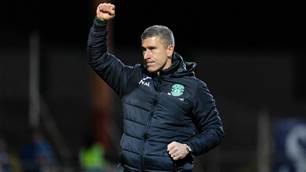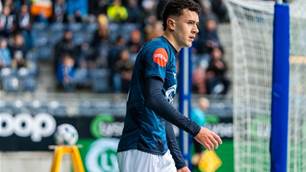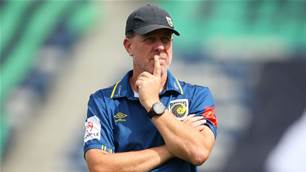Former Matilda legend Heather Garriock has joined the chorus of voices urging Football Australia to extend the length of the W-League season, sighting it as the best way to develop the next generation.
Garriock, who is part of FA’s Starting XI, a panel of former players and coaches who are advising FA’s Football Development Committee on the technical development of future players, believes more high quality game time is the key.
“My thought is, the quality may be lacking this season given the internationals and Matilda’s not being in the league, but it’s not about this season it’s about creating competitive matches for the next generation,” said Garriock, who coached Canberra United for three seasons. “We need succession planning for long term gain.
“The season must be at least 20 plus games so the younger group who are stepping up from the NPLW system have more exposure to the higher level.
“We see teams like Western Sydney and Newcastle with a core group of young players with potential. They will learn more and get better as the season goes on. But with only 13 games, how can this be sufficient time to develop them mentally as well as technically?
“Teams like Sydney FC, Brisbane, Melbourne City etc have experienced players who have been around for a while. You can see the gap between those teams and the rest.
“We won’t bridge this by giving young players such little game time against the best.”
Garriock, who played in Australia, Europe and America is one of the country’s most decorated players winning six domestic trophies in Australia, Denmark and Sweden. She also won the Julie Dolan Medal in 2003.
Her international career included 130 caps for the Matildas as well as an Asian Cup winners medal in 2010.
She also coached Sydney University in the NSW NPLW for four years before moving to Canberra United.
“These youngsters play nearly 30 NPLW games a year, why can’t they play more than 13 W-League games?” she questioned.
“It’s common sense the more game time you get at the higher level, the more capable you will become.
“The American NWSL has been the pinnacle of domestic competition and has more than 20 games a year. So do the best European leagues.”
Garrick, who is currently CEO of Australian Taekwondo, believes an extended W-League season is financially viable, especially since Australia is hosting the 2023 World Cup.
“We had amazing TV ratings for the W-League last season. The women’s game is getting more popular. The corporate dollar will come provided we market it correctly.
”With the World Cup coming here we can showcase to the world we have a professional league.
“This will attract quality imports who again will lift the standard so our local players can play competitive matches all year round.
“Government money needs to then be used to develop grass roots. If we show younger players in the local competitions, they have a proper full time professional league to aspire too, naturally they will be inspired to do better.
“This will help lift every aspect of the game from the grass roots right through to the top. We need to be strategic and think long term.
“If we develop quality players, we then have another revenue source, whereby we can transfer players to overseas leagues and get some money to flow back into the system.
“Let’s be professional and take things to the next level.”
Related Articles

Champion A-League coach set to join Premier League giants

Emerging Socceroos star set to sign for MLS club













